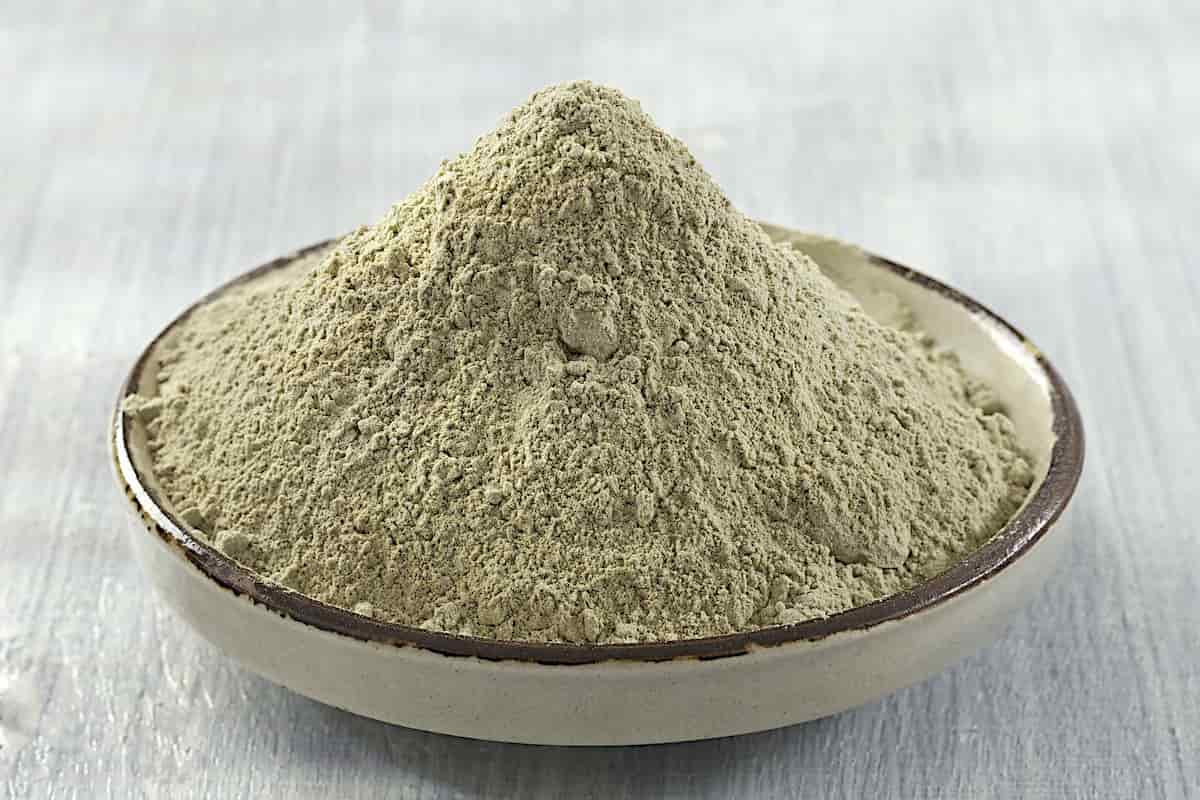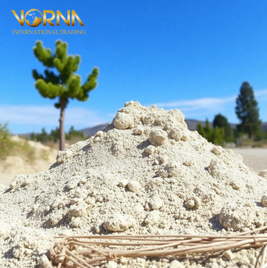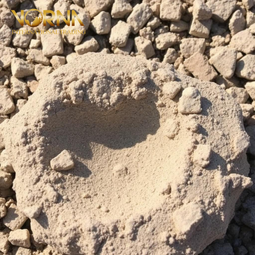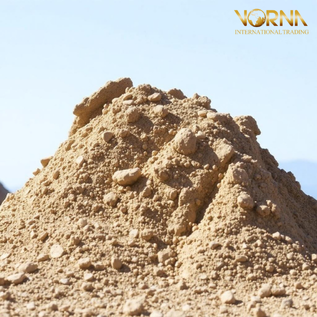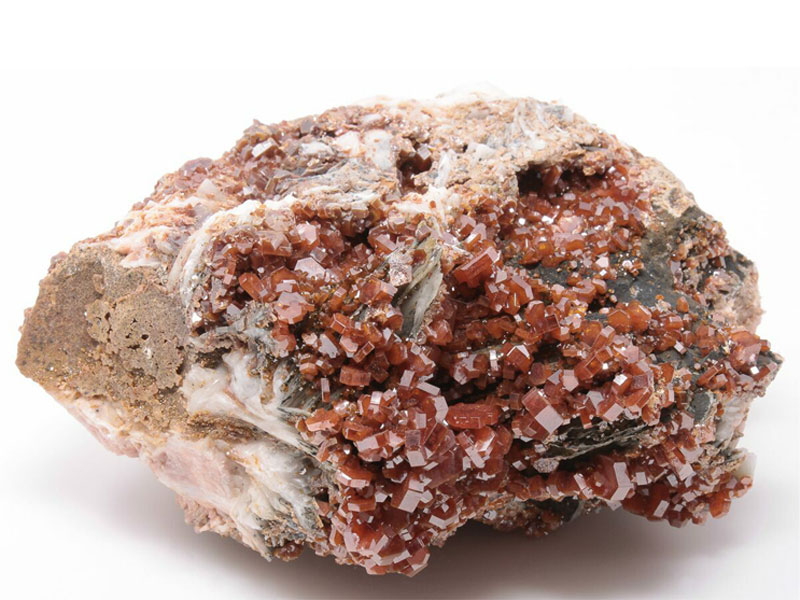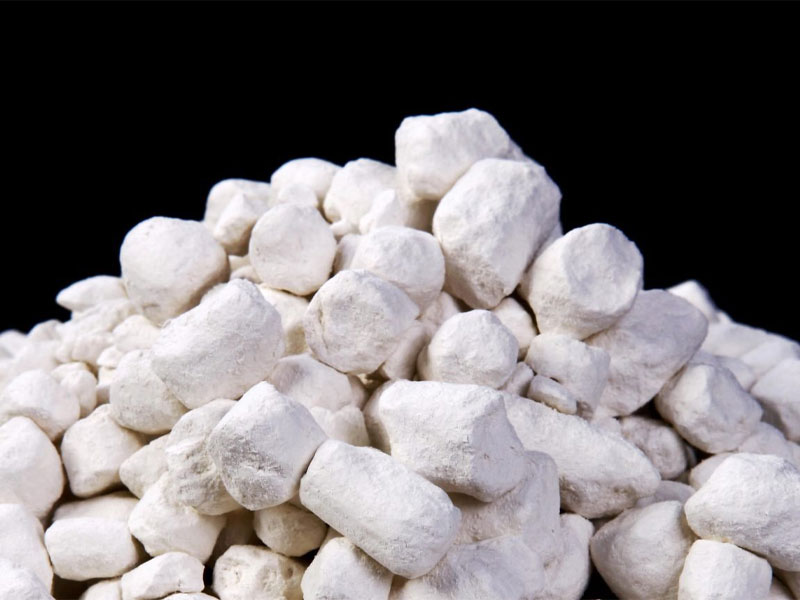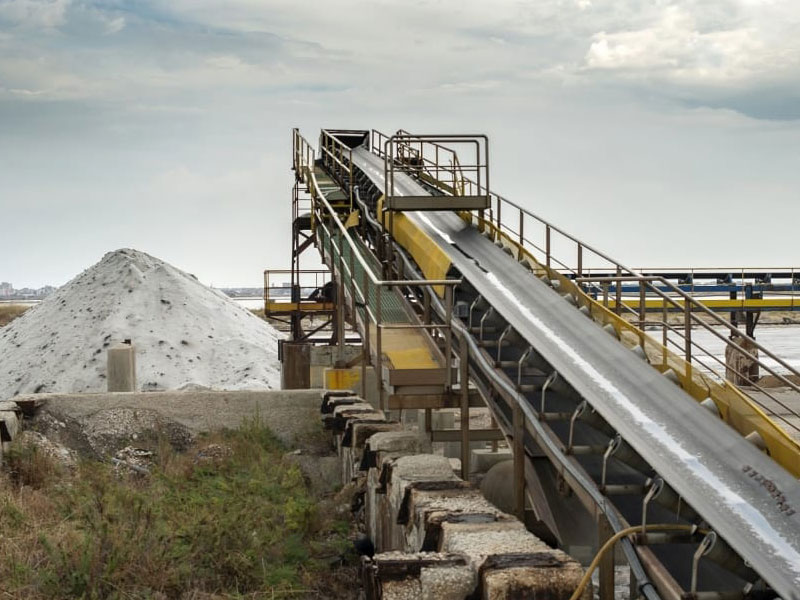What is Bentonite
Bentonite is a highly absorbent natural clay mineral that is widely used in various industries due to its unique physical and chemical properties. It is primarily composed of montmorillonite, a type of smectite clay known for its ability to absorb water and expand. Bentonite’s versatility comes from this swelling capability, along with its high surface area and cation-exchange capacity, making it useful in applications ranging from drilling fluids to cosmetics, agriculture, and environmental sealing.
Want to know Bentonite Price ?
What is Bentonite Clay and How is it Formed?
Bentonite clay forms from the weathering of volcanic ash, primarily in the presence of water and alkaline conditions. This process results in the transformation of volcanic glass into montmorillonite-rich clay. The clay typically appears as a soft, fine-grained powder that is often gray, cream, or light brown in color, depending on impurities.
The microscopic structure of bentonite consists of layers of silicate sheets separated by water molecules. These layers can absorb large quantities of water, causing the clay to swell and increase in volume by up to 15 times its original size. This property, called thixotropy, is what makes bentonite invaluable in many industrial applications.
Types of Bentonite
Bentonite is classified into several types based on the dominant exchangeable cation present in the clay:
Sodium Bentonite
Sodium bentonite is characterized by its strong swelling properties when exposed to water. It can absorb water and expand to form a highly viscous gel, making it ideal for sealing and binding applications. Sodium bentonite is commonly used in the drilling industry as a component of drilling muds, which help to lubricate and cool the drill bit, stabilize boreholes, and carry cuttings to the surface.
Calcium Bentonite
Calcium bentonite has a lower swelling capacity compared to sodium bentonite but exhibits excellent adsorptive properties. This type of bentonite is widely used in cosmetic and pharmaceutical products due to its ability to adsorb toxins and impurities. It is also used in animal feed, cat litter, and as a clarifying agent in the wine and juice industries.
Potassium Bentonite
Potassium bentonite is less common but used in specialized industrial applications such as ceramics and pet litter products. It possesses moderate swelling characteristics and good adsorptive abilities.
Chemical and Physical Properties of Bentonite
Understanding the chemical and physical properties of bentonite is essential for its effective application:
- Swelling Capacity: Bentonite’s ability to swell and absorb water is the defining property, particularly important for sealing and drilling applications.
- Cation Exchange Capacity (CEC): Bentonite has a high CEC, meaning it can exchange ions with surrounding materials, which is crucial for soil conditioning and contaminant adsorption.
- Particle Size and Surface Area: The fine particle size of bentonite creates a very large surface area, enhancing its adsorptive capacity.
- pH and Ion Content: Bentonite typically has a neutral to alkaline pH and contains ions like sodium, calcium, magnesium, and potassium, which influence its behavior.
Industrial Applications of Bentonite
Bentonite’s unique properties make it highly valuable across various industries. Below are some of the main industrial uses.
Bentonite in Drilling Fluids
One of the largest uses of bentonite is in the oil and gas drilling industry(Check out Bentonite Clay Drilling Mud). Bentonite is added to drilling fluids or “mud” to increase viscosity, suspend cuttings, and seal the walls of boreholes. The swelling property of sodium bentonite helps to form an impermeable layer that prevents fluid loss during drilling, reducing environmental impact and operational issues.
Bentonite in Foundry and Casting
Bentonite acts as a binder in foundry sands to mold metal castings. It helps to maintain the shape and strength of molds under high temperatures while allowing gases to escape. This results in higher-quality castings with fewer defects.
Bentonite in Construction and Environmental Engineering
Bentonite is used for waterproofing and sealing in construction projects. It is employed in slurry walls, landfill liners, and pond sealing due to its swelling capability which creates an effective barrier against water and contaminants. Additionally, bentonite can stabilize soils and prevent erosion.
Bentonite in Cosmetics and Skin Care
Due to its absorbent and adsorptive properties, bentonite clay is widely used in cosmetic products such as facial masks, powders, and cleansers. It helps remove excess oils, dirt, and toxins from the skin while soothing irritation. The gentle natural mineral composition makes it suitable for sensitive skin.
Bentonite in Agriculture
Bentonite improves soil quality by enhancing moisture retention and nutrient exchange. It is often used as a carrier for fertilizers and pesticides, facilitating controlled release and improving effectiveness. Bentonite also helps remediate contaminated soils by adsorbing heavy metals and pollutants.
Bentonite in Animal Feed and Pet Products
Calcium bentonite is commonly used as a feed additive to improve digestion and absorb toxins in livestock. Additionally, bentonite’s absorbency makes it a popular component in cat litter products.
Bentonite in Environmental Protection and Waste Management
Bentonite plays a critical role in environmental protection by serving as a sealing and adsorptive agent. In landfill management, bentonite liners prevent leachate from contaminating groundwater. It is also used in wastewater treatment to remove heavy metals and organic pollutants due to its high adsorption capacity.
How Bentonite’s Unique Properties Make It Essential
The natural ability of bentonite to absorb water, swell, and exchange cations enables it to function in many different roles:
- It creates impermeable seals in drilling and construction, preventing fluid or gas leakage.
- It binds and adsorbs contaminants, making it useful in pollution control and purification.
- It enhances physical properties of soils and industrial materials.
- It acts as a gentle yet effective agent for cleansing and detoxifying in personal care products.
Mining and Processing of Bentonite
Bentonite is typically mined in open pits, then processed by drying, grinding, and sometimes chemical activation to enhance its properties. The mining and processing methods can affect the purity and performance of the bentonite. After extraction, bentonite may be classified according to particle size, swelling capacity, and chemical composition to match specific industrial requirements.
Global Production and Major Bentonite Deposits
Major bentonite-producing countries include the United States, China, India, Turkey, Greece, and Mexico. The deposits are often located near volcanic regions where ash has transformed into bentonite clay. Quality and quantity vary by location, influencing global supply and pricing.
Safety and Environmental Considerations of Bentonite Use
Bentonite is generally considered safe and non-toxic. However, dust inhalation during mining and processing can cause respiratory irritation. Appropriate safety measures are necessary in industrial settings. Environmentally, responsible mining practices and proper disposal are essential to prevent land degradation and water contamination.
Future Trends and Innovations in Bentonite Applications
Research is ongoing to develop new uses of bentonite, such as in nanocomposites, drug delivery systems, and environmental remediation technologies. Advances in chemical activation and modification aim to enhance bentonite’s performance in these cutting-edge applications.
For efficient drilling operations, using Barite Drilling Mud instead of bentonite can improve performance and stability.

